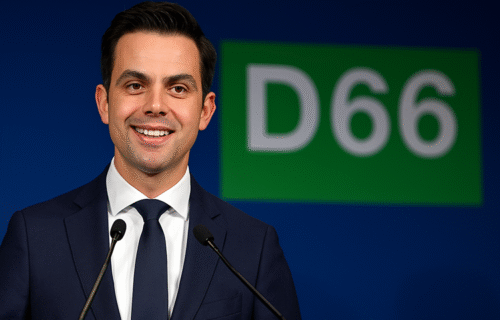The Netherlands is on the brink of a political turning point after the country’s recent general election placed 38-year-old Rob Jetten, leader of the liberal Democrats 66 (D66) party, at the forefront of coalition negotiations. If successful, Jetten would become both the youngest and the first openly gay prime minister in Dutch history—a symbolic milestone for a nation long known for its progressive values but now emerging from a turbulent political decade.
The election, held at the end of October 2025, produced one of the tightest results in recent memory. D66 secured a narrow lead over the far-right Party for Freedom (PVV), forcing parties to immediately enter complex talks on forming a governing coalition. Analysts say the vote signaled Dutch voters’ appetite for a pragmatic, pro-European leadership after years of polarisation and political fatigue.
Jetten, known for his calm demeanor and focus on consensus, built his campaign around a message of stability and inclusion. His platform emphasised affordable housing, climate policy, and a renewed European orientation—issues that resonated with younger and urban voters seeking a more forward-looking agenda. Under his leadership, D66 managed to rebuild momentum after internal struggles and voter drift earlier in the decade.
Though his party finished first, the path to power remains uncertain. The Netherlands’ fragmented political landscape means no single party can govern alone, and coalition negotiations are expected to stretch for weeks. Observers note that Jetten will need to unite centrist and centre-left parties while keeping the far right at bay—a delicate balancing act that will test his political skill.
Internationally, Jetten’s rise is seen as a reaffirmation of Dutch liberalism and European cooperation. Brussels insiders view him as a steady and constructive partner who could help bridge divides within the EU over migration, fiscal policy, and climate goals. His record as a former minister for climate and energy lends credibility to his pledge that the Netherlands will remain a leader in the green transition.
At home, Jetten inherits a country still grappling with housing shortages, strained public finances, and social divisions that have fuelled populist movements. His challenge will be to deliver tangible progress without reigniting the political volatility that has defined recent years.
If he succeeds in forming a government, Rob Jetten would represent a generational shift in Dutch politics—one shaped less by confrontation and more by compromise. His potential premiership marks a pivotal moment for the Netherlands: a test of whether a centrist, pro-European vision can once again unify a deeply diverse society.
